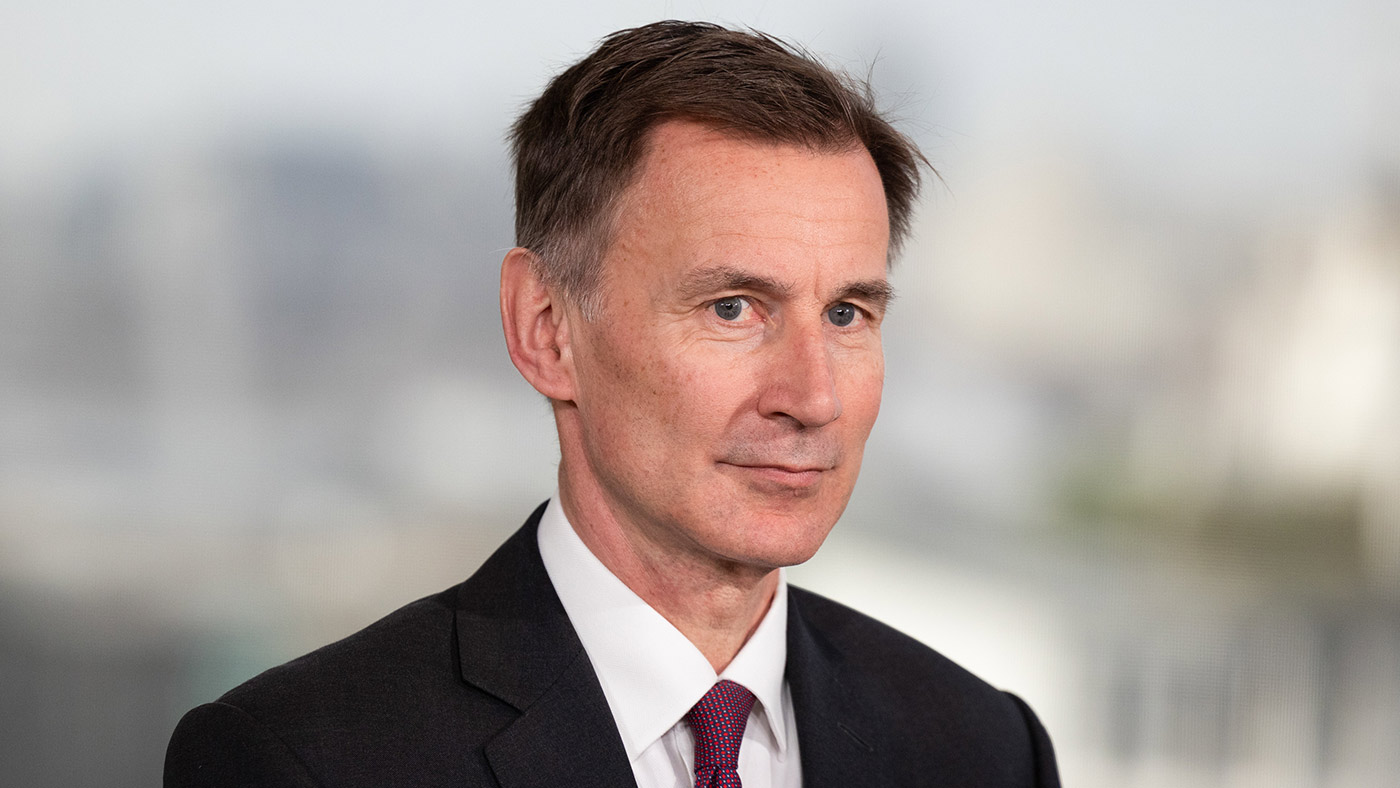Jeremy Hunt’s surprising tax windfall: to spend or to hold?
The chancellor has received an unexpected pre-Budget boost, with public finances in surplus for January

A free daily email with the biggest news stories of the day – and the best features from TheWeek.com
You are now subscribed
Your newsletter sign-up was successful
The Chancellor has received an unexpected boost “from the final snapshot of the public finances” before next month’s Budget, said Arthi Nachiappan in The Times. Economists polled by Reuters had forecast a deficit of £7.8bn in January.
But, lo and behold, what was actually delivered was a £5.4bn surplus – fuelled by record self-assessed income tax receipts of £21.9bn: a third up on last year and the highest January figure since monthly records began in April 1999.
The Government’s balance sheet is often in surplus in January, but this year’s had looked like being hit by rising government debt costs and spending on energy support schemes. Instead, the Treasury banked an unexpected tax receipt boost – with “the fall in natural gas prices” an extra boon.
The Week
Escape your echo chamber. Get the facts behind the news, plus analysis from multiple perspectives.

Sign up for The Week's Free Newsletters
From our morning news briefing to a weekly Good News Newsletter, get the best of The Week delivered directly to your inbox.
From our morning news briefing to a weekly Good News Newsletter, get the best of The Week delivered directly to your inbox.
‘Double-edged sword’
Lower than expected public spending has led to a sizeable undershoot in total borrowing this financial year, compared with the OBR’s forecast in November. The overall bill remains high, said Chris Giles in the FT, but it’s £30bn lower than the £177bn the OBR predicted – meaning that Jeremy Hunt will deliver his Budget cushioned by a sizeable windfall.
That, of course, is “a double-edged sword”. It gives the Chancellor “more options on taxation and spending”, but will also mean more demands on public money at a critical time in public sector pay negotiations. “The Treasury can no longer say there is no spare cash available.”
‘Running out of excuses’
The surplus “could tempt the Chancellor to offer a pay increase” to stop “another wave of strikes”, said KPMG economist Michal Stelmach. Indeed, according to the TUC general secretary, Paul Nowak, the Government is “running out of excuses” to break the deadlock. Rishi Sunak is now reported to be exploring a 5% pay rise for public sector workers – but Hunt “is batting away calls” for an improved offer, on grounds that public finances remain “under pressure”, said The Guardian.
The Chancellor will want “to build greater headroom” into the system to “provide scope for pre-election giveaways”, said Chris Giles. More importantly, he knows that high inflation could hurt government spending plans and leave public services “exposed”. Despite this week’s good news, concluded Cara Pacitti of the Resolution Foundation, Hunt “can’t afford to be relaxed about the state of public finances”.
A free daily email with the biggest news stories of the day – and the best features from TheWeek.com
-
 How the FCC’s ‘equal time’ rule works
How the FCC’s ‘equal time’ rule worksIn the Spotlight The law is at the heart of the Colbert-CBS conflict
-
 What is the endgame in the DHS shutdown?
What is the endgame in the DHS shutdown?Today’s Big Question Democrats want to rein in ICE’s immigration crackdown
-
 ‘Poor time management isn’t just an inconvenience’
‘Poor time management isn’t just an inconvenience’Instant Opinion Opinion, comment and editorials of the day
-
 Currencies: Why Trump wants a weak dollar
Currencies: Why Trump wants a weak dollarFeature The dollar has fallen 12% since Trump took office
-
 Elon Musk’s starry mega-merger
Elon Musk’s starry mega-mergerTalking Point SpaceX founder is promising investors a rocket trip to the future – and a sprawling conglomerate to boot
-
 TikTok: New owners, same risks
TikTok: New owners, same risksFeature What are Larry Ellison’s plans for TikTok US?
-
 Will SpaceX, OpenAI and Anthropic make 2026 the year of mega tech listings?
Will SpaceX, OpenAI and Anthropic make 2026 the year of mega tech listings?In Depth SpaceX float may come as soon as this year, and would be the largest IPO in history
-
 Leadership: A conspicuous silence from CEOs
Leadership: A conspicuous silence from CEOsFeature CEOs were more vocal during Trump’s first term
-
 Ryanair/SpaceX: could Musk really buy the airline?
Ryanair/SpaceX: could Musk really buy the airline?Talking Point Irish budget carrier has become embroiled in unlikely feud with the world’s wealthiest man
-
 Powell: The Fed’s last hope?
Powell: The Fed’s last hope?Feature Federal Reserve Chairman Jerome Powell fights back against President Trump's claims
-
 Taxes: It’s California vs. the billionaires
Taxes: It’s California vs. the billionairesFeature Larry Page and Peter Thiel may take their wealth elsewhere